Team

Stewart C. Wang
M.D., Ph.D.
Executive Director of the International Center for Automotive Medicine (ICAM); Executive Director of the Morphomic Analysis Group (MAG); Professor, Division of Acute Care Surgery; Director of Burn Surgery, University of Michigan

Kristen Cunningham
MPA
Director, ICAM
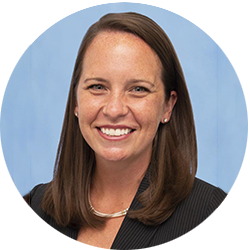
Staci Aubry,
M.D.
Clinical Instructor, Acute Care Surgery, University of Michigan

Edward Brown
Data Scientist, ICAM/MAG

Robert Campbell
Research Assistant- Crash Investigation, ICAM

Douglas P. Campbell

Paul Cederna
M.D.
Robert Oneal Professor of Plastic Surgery, Chief of the Section of Plastic Surgery, and Professor in the Department of Biomedical Engineering, University of Michigan
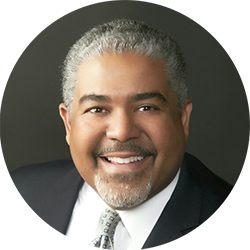
Robert D. Charles

Jill Cherry-Bukowiec
M.D.
Assistant Professor of Surgery, University of Michigan

Suzanne Cole
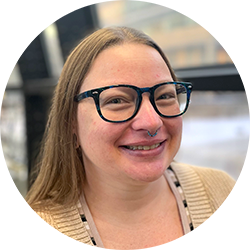
Tanya Coyle
Research Assistant- Medical Records Analysis, ICAM

Brian Derstine
M.S.
Data Scientist, Morphomics Analysis Group

Junia Doan

Peter F. Ehrlich
M.D.
Associate Professor, Pediatric Surgery, University of Michigan

Amy Getz
Data Analyst, ICAM

Brianna Henderson
Research Area Specialist Associate, Pediatric Surgery
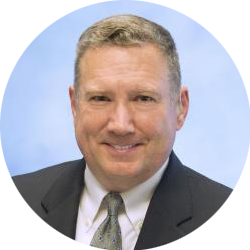
Mark Hemmila
M.D.
Professor of Surgery, Acute Care Surgery, University of Michigan

Sven Holcombe
Ph.D.
Crash Safety Engineer, ICAM/MAG

Yuan Huang
Ph.D.
Research Investigator, ICAM/MAG

Carol Knox
Administrative Assistant to the Director and Associate Director, ICAM/MAG
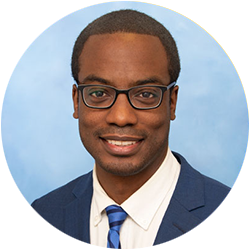
Raymond Jean,
M.D.
Assistant Profession, Acute Care Surgery, University of Michigan

Rob Kaufman
Senior Crash Investigator, ICAM

Robert C. Lange

Adrian K. Lund
Ph.D.

Gaelen McIntee
Web Programmer, MAG/ICAM

Christopher O'Connor
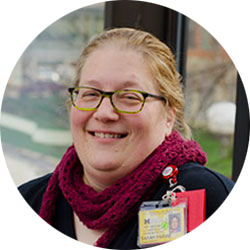
Sarah Parviz
Program Coordinator, Michigan State Burn Coordination Center, University of Michigan Health System Trauma Burn Unit

Anne Rammelkamp
R.N.
Medical Records Analyst, ICAM

Brian Ross
(R)(CT)
Research Analyst, ICAM/MAG

Nidhi Shah
Research Specialist, ICAM/MAG

Michelle Scully
RN, MSN
Medical Records Analyst, ICAM
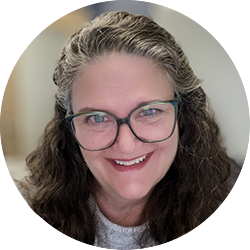
June A. Sullivan
MBA
Managing Director, MAG

Lu Wang
Ph.D.
Associate Professor of Biostatistics, University of Michigan

Stewart C. Wang
M.D., Ph.D.

Peng Zhang
Ph.D.
Research Assistant Professor, University of Michigan

Staci Aubry,
M.D.
Clinical Instructor, Acute Care Surgery, University of Michigan
Staci Aubry, MD joined the Acute Care Surgery division of Michigan Medicine in 2022. She obtained her B.S. from the University of Michigan and then went on to obtain her M.D. degree at Rush Medical College in Chicago, IL. She completed her general surgery residency at the University of North Carolina, followed by a fellowship in Trauma and Surgical Critical Care here at the University of Michigan. Dr. Aubry specializes in the care of patients suffering from an acute surgical illness or trauma. Her practice consists of all aspects of emergency general and trauma surgery, as well as surgical critical care in both the surgical intensive care unit and the trauma/burn intensive care unit. Dr. Aubry is also actively involved in the medical student education through the surgical clerkship and is currently obtaining her master's in health professional education (MHPE) at the University of Michigan.

Edward Brown
Data Scientist, ICAM/MAG
Edward received degrees in Systems Engineering and Economics from the University of Virginia. Prior to coming to the University of Michigan, he worked as a systems engineer and an data scientist in projects raging from the tracking of antibiotic resistant bacteria to the prediction of hate crimes in Louisiana. He developed an expertise in spatial modeling while working on software which aided soldiers in Afghanistan and Iraq better understand the factors involved in road side bomb emplacement. He is passionate about leveraging insights from data to improve decision making and he helps researchers do that with the lab's Morphomics data.

Robert Campbell
Research Assistant- Crash Investigation, ICAM
Robert earned bachelor's degrees in both Mechanical and Biomedical Engineering from the University of Michigan-Dearborn. After graduating in 2019, he worked for UMTRI as a Research Assistant which sparked his interest in the automotive safety industry and led him to ICAM beginning in 2022. Currently, he is pursuing his master's in biomedical engineering with a focus on the biomechanics of injury.

Douglas P. Campbell,
Mr. Campbell became President of Campbell & Campbell Consulting and acquired the Automotive Safety Council (ASC) as a long-term client in June 2008 upon retiring from TRW after 22 years. In his capacity at TRW as Vice President of Engineering for the Global Occupant Safety Systems, he oversaw all engineering activities for the inflatable restraint, seat belt, steering wheel, safety and security electronics, and lane keeping product lines with a budget of over $300 million and 2200 people. Mr. Campbell earned a Bachelor of Science degree in Mechanical Engineering from Kettering University. He holds a Master of Science degree in Engineering Design and Economic Evaluation from the University of Colorado and a certificate in International Business Studies from the American International Graduate School of Business. A Professional Engineer, Mr. Campbell has been chairman of various committees of the Automotive Safety Council, the Society of Automotive Engineers, American Management Association, and the International Association of Oil Drilling. He has earned TRW's Chairman Award for Innovation, Baker International Management Award, numerous patents, the Engineering Innovation of the Year Award from Petroleum International magazine and NHTSA's Special Appreciation Award for career contributions to auto safety. As President of the Automotive Safety Council (ASC), Mr. Campbell oversees all of the 40 member organization's activities which involves many roles, some of which include: governmental affairs contact to help educate US and State Congressional members about auto safety; replies to NHTSA rule making/questions; promotes the use of Active, Passive, Interior, and Child Safety; supports activities of other groups involved in auto safety; and coordinates ASC member technical committees including the annual 4 day global safety conference which features the premier auto safety leaders of the world.

Paul Cederna,
M.D.
Robert Oneal Professor of Plastic Surgery, Chief of the Section of Plastic Surgery, and Professor in the Department of Biomedical Engineering, University of Michigan
By combining his clinical training in general surgery, microsurgery, and plastic surgery and background in biomedical engineering, he is able to incorporate creative solutions with technically challenging operations to solve the most difficult problems resulting from trauma, cancer, or burns. Dr. Cederna received his Bachelors of Science in Biomedical Engineering from the University of Michigan College of Engineering and his MD from the University of Michigan Medical School. Thereafter, he completed a residency in General Surgery and a fellowship in Microsurgery at the University of Iowa Hospitals and Clinics. He then returned to Ann Arbor, Michigan where he completed his Plastic Surgery Fellowship training at the University of Michigan Health System. He then completed two additional years of basic science research training as a postdoctoral research fellow within the Muscle Mechanics Lab of the at the University of Michigan. He has since joined the faculty at the University of Michigan where he has been a full time academic surgeon since 1999.

Robert D. Charles,
With 25+ years of general management, strategic planning, and business development experience gained in the US, Canada, Europe, Latin America, and Far East, Mr. Charles serves as Chairman and CEO of North Star Advisors, LLC (NSA), a Strategic Management, Global Sourcing, and Growth-Stage Investment Company. NSA’s entrepreneurial approach employs Advanced Analytics, Lean Six-Sigma techniques, and Strategic Alliances to resolve mission-critical complexities and improve operational performance across multiple functional areas. Additionally, NSA has successfully launched or incubated various start-up ventures, including Lean Healthcare Organization (a Revenue Cycle Management Company), MarginXL Capital Partners (a middle-market Private Equity Fund), and MarginXL Advisors (a Business Management Consultancy). Prior to founding NSA, Mr. Charles served as the President of a nascent medical technology company, as the Executive Vice President of Global Financial Services at Ford Motor Credit Co., a partner of CSC Index, and the President of Advanced Device Corp. In addition to holding senior positions with Bain & Co., Exxon Corp., and Chase Manhattan Bank, he earned a Master's in Business Administration from Harvard University's Graduate School of Business, and a Bachelor of Arts from Dartmouth College.

Jill Cherry-Bukowiec,
M.D.
Assistant Professor of Surgery, University of Michigan
Dr. Cherry-Bukowiec received her undergraduate degree from Miami University in Oxford Ohio and her medical degree from the University of Toledo. She completed her general surgery training at Eastern Virginia Medical School and went on to complete her clinical training in Acute Care Surgery and Surgical Critical Care, as well as obtained a master's degree in Clinical Research Design and Statistical Analysis, at the University of Michigan. She received her fellowship training in nutrition as a Nestle Enteral Nutrition Fellowship recipient. Dr. Cherry-Bukowiec is board certified in General Surgery, Surgical Critical Care, and in Nutrition by the National Board of Physician Nutrition Specialists. Dr. Cherry's clinical interests focus on Surgical Critical Care, Trauma, Non-Trauma Emergency and General Surgery. She is the Medical Director of the University of Michigan Trauma Burn ICU and provides surgical care for injured patients and patients with acute general surgery problems. She has a special interest in patients with severe infection and sepsis, and challenging nutrition problems. Dr. Cherry has a strong interest in clinical nutrition. She was a recipient of the Nestle Nutrition Institute Enteral Nutrition Fellowship. She serves on the National Board for Nutrition Physician Specialists representing the Society of Critical Care Medicine (SCCM). She is a Past-President of the Michigan Society for Parenteral and Enteral Nutrition and currently serves on the society's physician director. She is the founder of the Nutrition Advisory Committee for the University of Michigan Hospital and a currently acts as physician advisor for the committee. Dr. Cherry also has a strong interest in teaching medical students and residents. She is the Education Coordinator for the Division of Acute Care Surgery and Doctoring Faculty for the Medical School Doctoring Course. She is also the faculty lead for the new University of Michigan medical student curriculum M1 nutrition sequence.

Suzanne Cole,
Ms. Cole is CEO of Miller Cole LLC, a management-consulting firm in Washington, D.C. specializing in legislative and regulatory affairs, advocacy and government funding for corporate technology R&D, and manufacturing. She is an expert in the development of successful integrated (product, regulatory, legislative) market strategies for industry. She has counseled corporate, nonprofit, and international clients on transportation, automotive safety, chemicals, energy, environmental, and public policy matters including state and federal regulatory and legislative issues. Ms. Cole chaired Global Automotive Safety Conferences for the Society of Plastics Engineers, which brought together automotive OEM, supplier executives, and engineers with medical and regulatory communities to discuss auto safety design, injury prevention, new materials applications, telematics, and electronic data recorders. She also served on numerous legislative committees at the state and federal levels: she was appointed by Governor Engler to the Michigan Broadband Development Authority; and served on the Resource Conservation and Recovery Act Revisions and Superfund Committees in Congress as well as the President's Export Council. She has testified before Congress on automotive safety, vehicle emissions and diesel technology and authored a white paper for the University of Michigan's Transportation Research Institute on Vehicle Recycling and End of Life of Vehicles. Formerly, Ms. Cole was the Vice President for Global Government Affairs (1996-1998) for the Ocean Group, PLC in London, England, wherein she led the global government and regulatory affairs effort, including U.S. Federal government relations, effectively established a global government interface capability, and served as the corporate representative to proactively shape and influence key policy actions critical to Ocean's strategic objectives. She has a Bachelor's of Science from Michigan State University, a Master's of Business Administration from The University of Michigan, Ross Business School, and a Master's in Chemical Engineering from Wayne State University.

Tanya Coyle
Research Assistant- Medical Records Analysis, ICAM
Tanya has been at Michigan Medicine for 13 years. She was a Medical Assistant for 10 years followed by work in clinical research. She has extensive experience in medical record abstraction and review. In her spare time, she likes to camp and travel with her family and dogs.

Kristen Cunningham,
MPA
Director, ICAM
Kristen is an accomplished professional with extensive experience in project management, organizational development, and community engagement. She currently serves as the Director of the International Center for Automotive Medicine (ICAM) at the University of Michigan. In this capacity, Kristen leads initiatives focused on advancing automotive safety by overseeing research projects, driving organizational development, and fostering relationships with key stakeholders. Her leadership extends to team management and effective project implementation within a complex research environment. Kristen has a BA from Michigan State University and a Master of Public Administration from Eastern Michigan University.

Brian Derstine,
M.S.
Data Scientist, Morphomics Analysis Group
Brian received his B.A. from University of Chicago and his M.S. from University of California, Berkeley. Prior to coming to the University of Michigan, he worked in private industry for over 10 years as a data analyst, consultant, and project manager in consumer goods marketing research, internet marketing, and transportation software development. He specializes in R, Tableau, and SQL for data management, visualization, and analysis and helps to organize and shepherd the lab's clinical research projects from conception to publication.

Junia Doan,
Junia Doan is the Producer/Interviewer of "Uncommon Sense with Junia", a biography program aired on regional PBS on Sundays. For 25 years she was a leader in programming and development for the Midland Matrix Festival, an annual Arts, Science and Humanities Festival in Midland, Michigan, MATRIX: Cinema, and Something New. She has also served on various boards including the Mackinac Center for Public Policy, The Population Reference Bureau, Washington, D.C., The Detroit Institute of Arts , Cranbrook Academy of Arts, Michigan Council for Humanities and Michigan Council for Arts & Cultural Affairs. A descendant of a pioneer Oklahoma family and a graduate of Barnard College, she worked in finance and fund management until she married her late husband, Herbert D. "Ted" Doan and moved to Midland, Michigan.Junia now resides in Midland and Manhattan.

Peter F. Ehrlich,
M.D.
Associate Professor, Pediatric Surgery, University of Michigan
Dr. Ehrlich earned his medical degree from University of Toronto Faculty of Medicine. He completed his General Surgery residency at the University of Toronto. In addition he completed a Master of Science in Molecular Pathology form the Institute of Medical Sciences at the University of Toronto. He also completed a fellowship in Pediatric Surgery at Children's National Medical Center in Washington DC. After he completed his fellowship, Dr. Ehrlich spent 5 years at West Virginia University Children Hospital as the director of pediatric surgery. He came to Ann Arbor in 2003 and currently is an Associate Professor of Surgery. Dr Ehrlich's research focus on cancer and trauma in children.

Binu Enchakalody,
M.S.
Research Software Engineer, MAG
He received his Bachelors in Biomedical Engineering from Cochin University, India in 2000 after which he completed his M.S. with a thesis in Biomedical Engineering from Wright State University, Ohio in 2008. After graduation, he worked at iCAD, Inc. and Monsanto as an Image Processing Engineer before joining MAG in 2010. He actively collaborates with medical researchers and data experts to create automated and semi-automated tools to analyze and predict the variations in human and animal body structures.

Amy Getz
Data Analyst, ICAM
Amy earned a B.S. in Molecular Biology from Grove City College and received her master's degree in Public Health, Epidemiology from the University of Michigan. She first discovered her interest in data science while working in research wet labs, where she began optimizing specimen data management workflows. As a member of a UM respiratory virus research lab during the pandemic, she developed a custom data management system that involved automating and standardizing PCR results processing for SARS-CoV-2, Flu, and RSV across all lab-based studies, shortening the time between testing, sequencing, and publication. She is excited to be launching a new chapter of her career at ICAM, investing in the mission of automotive safety.

Brianna Henderson,
Research Area Specialist Associate, Pediatric Surgery
Brianna received her B.A. from the University of Michigan in May 2014. As an undergraduate, Brianna worked for ICAM as a Research Assistant and collaborated on various projects using Analytic Morphomics. After graduation, she worked as a Research Assistant at the University of Michigan-School of Public Health on the Household Influenza Vaccine Effectiveness (HIVE) study where she recruited eligible households to see how well the influenza vaccine worked in preventing influenza. Currently, Brianna is collaborating with Peter Ehrlich, M.D. MSc, on a study which looks at the injury patterns of children who have been in motor vehicle crashes by using Analytic Morphomics. Brianna is planning to pursue a Master's degree in Public Health to further her career in research in order to help make the world safer for generations to come.

Mark Hemmila,
M.D.
Professor of Surgery, Acute Care Surgery, University of Michigan
Dr. Hemmila is a Professor in the Section of General Surgery within the Department of Surgery at the University of Michigan. He serves as an attending faculty member in the Division of Acute Care Surgery. Dr. Hemmila received his Bachelor of Science in Chemical Engineering from the University of Rochester-Rochester, NY in 1985. Postgraduate study in Chemical Engineering and Biomedical Engineering was performed at Columbia University-NYC, NY. Dr. Hemmila graduated from the University of Michigan Medical School in 1994 and from General Surgery residency at the University of Michigan Medical Center in 2001. He is board certified in the specialties of Surgery and Surgical Critical Care. His clinical practice encompasses trauma, burn, critical care, and emergency general surgery.
Dr. Hemmila was involved in the creation and conduct of the American College of Surgeons Trauma Quality Improvement Program (ACS-TQIP). Based upon the success of previous Blue Cross Blue Shield of Michigan (BCBSM) funded clinical registry and quality improvement programs, Dr. Hemmila launched the Michigan Trauma Quality Improvement Program (MTQIP). The initial program was funded by the BCBSM Foundation as a pilot project from 2008 to 2010. BCBSM formalized this CQI in January of 2011. He serves as the director of this collaborative which brings together 35 participating trauma centers in Michigan to focus on quality improvement at a statewide level. In addition, he has funding from the Michigan Department of Health and Human Services to conduct trauma system reporting. Dr. Hemmila serves as the Director of Adult Trauma and as the Associate Chief Medical Information Officer for Surgery at University of Michigan Health.

Sven Holcombe,
Ph.D.
Crash Safety Engineer, ICAM/MAG
Dr. Holcombe earned his PhD in Biomedical Engineering from the University of Michigan in 2016. He received dual degrees in Engineering (Mechatronics) and Information Technology (Software Development) from the Australian National University in his hometown of Canberra, Australia. Sven's crash safety career began in Tsukuba, Japan, where he worked for four years in the impact biomechanics group at the Japan Automobile Research Institute, developing Finite Element Human Body Models for predicting injuries that a person may sustain during a car crash. Since moving to Michigan in 2008, Sven has developed the University of Michigan's Morphomics Analysis System, which takes measurements of body size and shape from CT scans along with precise measures of bone, muscle, and fat composition. His own research then uses this data to describe how we all differ as individuals of a larger population, in ways that are used both by engineers to improve car safety systems and doctors to improve surgical care and treatment outcomes.

Yuan Huang, Ph.D.
Research Investigator, ICAM
Yuan Huang, Ph.D., is a Research Investigator in Department of Surgery and works within the International Center for Automotive Medicine (ICAM). She completed her undergraduate degree in Automotive Engineering at Hefei University of Technology, Anhui, China in 2015; and received her doctoral degree in Automotive Engineering from Tsinghua University, Beijing, China in 2020. Prior to accepting her current position as a research faculty member, she worked as a postdoctoral fellow at icam.
Dr. Huang's research centers on numerical human body modeling, as well as computational investigation on injury mechanisms and risk evaluation of human body in various vehicle crash scenarios on road. Her current study focuses on characterizing the population diversity in anthropometries and incorporating the variation into computational models, through analyzing the extracted anatomical features from CT scans and transforming computational human body models accordingly with the aid of statistical and deep learning tools. She is now also interested in developing injury risk prediction models for both automotive crash safety design and treatment decision support based on real accidental and clinical data.

Raymond Jean, M.D.
Assistant Professor, Acute Care Surgery, University of Michigan
Raymond A. Jean, MD, MA, MHS is a Clinical Assistant Professor in the Division of Acute Care Surgery at the University of Michigan. Originally from the New York City area, Dr. Jean graduated with an A.B. in Engineering Sciences from Harvard University. He went on to receive his medical degree from the Washington University in St. Louis School of Medicine, where in addition to an M.D., he received a M.A. in outcomes research. He then completed his internship and residency in General Surgery at Yale-New Haven Hospital in Connecticut. During that time, he also obtained a M.H.S. degree from Yale University as a postdoctoral fellow in the National Clinician Scholars Program. He then completed a surgical fellowship in Trauma and Surgical Critical Care at the University of Washington’s Harborview Medical Center in Seattle, before joining the faculty at the University of Michigan. He specializes in the surgical treatment and management of patients who suffer injuries from trauma and emergent general surgery conditions. Furthermore, he specializes in surgical critical care and management of patients in the Trauma/Burn Intensive Care Unit. Dr. Jean’s research interests center on using large datasets to study and improve perioperative outcomes and mitigate disparities in surgical care. He aims to use statistics and machine learning to design systems that integrate the large amount of pre-existing health data and leverage this towards improving perioperative workflow and outcomes.

Rob Kaufman
Senior Crash Investigator, ICAM
Rob received his degree in Mathematical Sciences at the University of Iowa. For nearly three decades he has conducted crash reconstructions researching injury mechanisms in the field of automotive medicine. In the summer of 2018, he joined the ICAM team as the Sr. Crash Investigator.

Carol Knox,
Administrative Assistant to the Director and Associate Director, ICAM/MAG
Carol has recently returned to the University of Michigan after a long hiatus that included raising children and a stint in the fiber arts industry. After obtaining a degree in Russian Language and Literature at Oklahoma State University in 1990, Carol came to work at the University of Michigan in the Reproductive Sciences Program in 1992.

Carla Kohoyda-Inglis,
MPA
Program Director, ICAM/UMPIRE
Carla received a Master's of Public Administration from the Gerald R. Ford School of Public Policy at the University of Michigan in 2006. She has worked in the field of crash research since 1997 and is a valuable member of the University of Michigan Program for Injury Research and Education (UMPIRE) team.

Robert C. Lange,
Mr. Lange is a Principal and the Corporate Vice President for Exponent. He holds numerous affiliations and advisory appointments along with being published on a vast array of subjects. Mr. Lange has almost 40 years experience in automotive engineering, specializing in motor vehicle safety and public health. Of the hundreds of areas Mr. Lange has expertise, the following specialties show the breadth and depth of his knowledge base: safety technology development and insertion patterns; collision causal factors and collision typology; collision and injury risk assessment; occupant performance; owners' manuals and warnings; vehicle dynamics, responsiveness, and control; tire and wheel systems; chassis systems and collision avoidance; rollover vehicle dynamics, occupant kinematics, and injury mechanisms; autonomous sensor-based and cooperative wireless collision avoidance technologies; dynamic collision response for vehicles and occupants in planar and rollover events; occupant protection technologies; inflatable restraint sensor system design, performance, and specifications; fire cause, origin, and propagation; fuel system design and performance; post-collision performance and response; non-collision injury mechanisms; policy approaches to motor vehicle safety; and defect investigations.

Kate Leary,
Research Specialist
In April 2017, Kate graduated from the University of Michigan. She received a Bachelor of Science in Philosophy, reflecting her love of both science and the humanities. During her junior and senior years at Michigan, Kate was a student research assistant for the Morphomics Analysis Group. Under the direction of Dr. Barbra Miller, Kate processed hundreds of scans to help with the identification of morphomic markers for adrencortical cancer patients. Now Kate works full-time for the MAG lab, where she will continue processing CT scans while aiding in the integration of morphomics into the clinical setting. Kate hopes to attend medical school in the fall of 2018, but in the mean time she enjoys learning all she can from the medical research setting the ICAM/MAG lab provides.

Honglak Lee,
Ph.D.
Assistant Professor, Computer Science and Engineering, University of Michigan
Dr. Lee received his Ph.D. from Computer Science Department at Stanford University in 2010, advised by Prof. Andrew Ng. His primary research interests lie in machine learning, which spans over deep learning, unsupervised and semi-supervised learning, transfer learning, graphical models, and optimization. He also works on application problems in computer vision, audio recognition, robot perception, and text processing. His work received best paper awards at ICML (2009) and CEAS (2005). He has served as a guest editor of IEEE TPAMI Special Issue on Learning Deep Architectures, as well as area chairs and senior program committee of ICML, NIPS, IJCAI, and ICCV. He received the Google Faculty Research Award in 2011, and was selected by IEEE Intelligent Systems as one of AI's 10 to Watch in 2013.

Adrian K. Lund,
Ph.D.
Dr. Lund has served as President of the Insurance Institute for Highway Safety (IIHS) and its affiliate, the Highway Loss Data Institute (HLDI). Dr. Lund earned his doctoral degree in Social Psychology from the State University of New York at Buffalo in 1975 and served as an assistant professor in Residence in the Department of Behavioral Sciences and Community Health at the University of Connecticut Health Center from 1974 to 1981. Since joining IIHS as a Behavioral Scientist in 1981, Dr. Lund's research has spanned the range of driver, vehicle, and roadway factors involved in the safety of motor vehicle travel. As Senior Vice President for Research from 1993 to 2001, he directed the development of the Institute's extensive vehicle testing program. Throughout his career at IIHS, Dr. Lund has participated in a number of government and non-governmental committees addressing ways to reduce the injuries, fatalities, and property damage from motor vehicle crashes. Currently, he serves as: a trustee for the Global New Car Assessment Programme (Global NCAP); an external advisory board member for the University of Michigan's Transportation Research Institute (UMTRI); and an advisor on the National Advisory Committee for the University of Wisconsin's Active Aging Research Center (AARC).

Joel MacWilliams,
Crash Investigator, ICAM
Joel has been conducting research on automobile crashes for the past 36 years. He spent the first 15 years working as a contractor to the National Highway Traffic Safety Administration (NHTSA) as a field investigator, trainer, quality control specialist, and special investigator. He has been with the University of Michigan for the past 21 years working with physicians, EMTs, nurses, educators, and engineers who are researching injury causation/impact biomechanics and vehicle-based countermeasures in order to reduce or eliminate the injurious effects of motor vehicle crashes. Joel has vast experience in automobile collision dynamics, occupant kinematics, vehicle safety systems performance and effectiveness. Joel is currently the senior crash investigator at ICAM and works cooperatively with the Washtenaw County Medical Examiner's Office.

Gaelen McIntee
Web Programmer, MAG/ICAM
Gaelen attended Lansing Community College and then moved to Grand Valley State University, where he received his B.S. degree in Computer Science. Prior to moving to the University of Michigan, he worked in the private sector as a full-stack web developer creating and maintaining e-commerce websites. He specializes in Javascript, HTML, CSS, and has used many of the popular web frameworks over the years. His goal is to provide the lab with a solid technical foundation, as well as professional user interfaces and visualizations, to help drive the lab's research forward.

Christopher O'Connor,
Mr. O'Connor joined First Technology Safety Systems in 2007 as President & CEO, later named, Humanetics Innovative Solutions, Inc. During the last three years, Mr. O'Connor tripled the size of the business, developed several new products, improved operational performance, and generated profitable growth. Humanetics is the worldwide leader in its related safety & crash test markets. Mr. O'Connor is also the President & CEO of Safety Technology Holdings (STH) the parent company to Humanetics and HITEC, a high tech engineering services company. Mr. O'Connor started his leadership career in the U.S. Army and he currently continues to serve as a senior officer (Colonel) in the U.S. Army Reserves. Prior to Humanetics, Mr. O'Connor was at Morningside, a private investment group owning companies in the fields of automotive, medical, industrial, and advanced technology. From 1999 to 2007, he was President & CEO of Prospects Corp., an innovative sensor company with convenience and safety related products for the automotive marketplace. Mr. O'Connor received his Bachelor of Science in Electrical Engineering, and Master of Science in Mechanical & Manufacturing Engineering from Syracuse University. He is a graduate of the GE Advance Course, GE Crotonville Course, U.S. Army Command & General Staff College, and has completed Executive Management courses at Harvard and the prestigious Executive Program at the University of Michigan. Mr. O'Connor is the 2012 recipient of Ernst & Young's prestigious Entrepreneur of the Year 2012 Award as winner for Michigan & Northwest Ohio.

Sarah Parviz,
Program Coordinator, Michigan State Burn Coordination Center, University of Michigan Health System Trauma Burn Unit
Sarah provides the Unit with clinical administrative support, assisting Dr. Wang in his organizational, educational, and quality assurance efforts as the Burn Director. Sarah is also involved in Dr. Wang's projects with the Plain Community, and assists with the UMHS Burn Unit's outreach, research, and education efforts. She also participates in various ICAM and MAG research endeavors. Sarah, an Ann Arbor native, graduated from the University of Michigan in 1991 with a degree in History.

Anne Rammelkamp,
R.N.
Medical Records Analyst, ICAM
Anne has a BS in nursing from University of Michigan and a BA in French from Michigan State University. She has a background in public health and medical education, but specifically brings to our team many years of experience in medical record data abstraction, medical transcription and medical record auditing. Just prior to joining our team, she worked on two statewide clinical quality initiatives coordinated by the University of Michigan in the fields of breast cancer and hereditary cancer genetic mutations.

Brian Ross,
(R)(CT)
Research Analyst, ICAM/MAG
Brian started his position with ICAM and MAG in 2015. He graduated from Michigan State University with a B.S. degree in physiology in 2003 then earned licensure with the American Registry of Radiologic Technologists via an AAS degree from Lansing Community College in 2006. After working for two years in the University of Michigan Health System's General Imaging department, Brian transferred to the Computed Tomography department where he worked as a technologist for seven years. Brian brings his hands-on experience operating CT scanners to a field where CT scan images are used as a source of information for various research projects.

Nidhi Shah,
Research Specialist, ICAM/MAG
Nidhi completed her Bachelors in Biomedical Engineering from Ganpat University, India and Masters in Biomedical Engineering with specialization in Biomechanics from New Jersey Institute of Technology, Newark, New Jersey. She has worked closely in the field of business research and entrepreneurship development in the life science industry back in India. After completion of her Masters, she worked at the University of Toedo researching on the biomechanical testing and analysis. She brings in biomedical research and project management experience to the department’s various research projects.

Michelle Scully
RN, MSN
Medical Records Analyst, ICAM
Michelle earned her bachelor’s degree in nursing from the University of Michigan-Flint. While her first professional role was in the Intensive Care Unit, her career has provided diverse experience in the post-anesthesia care unit, endoscopy, general surgery and surgical specialty clinics, urgent care, peer review, medical/legal adverse event reporting, and traumatic injury case review with coding in support of Joint Trauma Analysis & Injury Prevention in Combat (JTAPIC). Michelle holds a certificate in paralegal studies with experience in administrative law, which she applied while earning her master’s degree in nursing with specialization in public/population health. Her interest in public health began during her undergraduate coursework as a student in international nursing to the Dominican Republic and has continued throughout her career. Michelle recognizes the value of injury analysis and its potential application for a variety of preventive public health initiatives. She enjoys working with and learning from the ICAM team.

June A. Sullivan,
MBA
Managing Director, MAG
She has a Bachelor's of Fine Art in photography, a Bachelor's of Science in psychology, and a Master's of Business Administration from California State University. June has 20+ years' experience managing technical and research projects in both higher education and the private sector. She has been an integral part of the MAG team since its inception, is a certified project manager, and has spent the last 7 years focused on research associated with morphomics.

Ed Trager
Application System Analyst
Ed received a B.A. from Oberlin College and a M.S. degree from the University of Michigan School for Environment and Sustainability (SEAS). Prior to joining ICAM, Ed worked for over 15 years at the Kellogg Eye Center at the University of Michigan as a bioinformatics and database programmer where he designed human pedigree visualization software used in genetics linkage studies, as well as several clinical and research data management systems used in inherited eye disease research. Ed specializes in organizing, managing, and presenting complex data in ways that are intuitive, visually appealing, and informative.

Stewart C. Wang,
M.D., Ph.D.
Director of the Morphomic Analysis Group (MAG); Director of the International Center for Automotive Medicine (ICAM); Professor, Division of Acute Care Surgery; Director of Burn Surgery, University of Michigan
Dr. Wang is the First Endowed Professor of Burn Surgery. He received an AB in History of Science and Medicine from the Yale College before going on to complete his MD at the University of Chicago. He also earned a PhD in Molecular Immunology at the University of Pittsburgh during his general surgical residency training. He joined the University of Michigan faculty in 1995. His clinical expertise is in the areas of general surgery, acute care surgery, trauma, and burns. Dr. Wang is Director of Burn Surgery at the University of Michigan's ABA-verified Burn Center and Director of the State of Michigan Burn Coordinating Center for Mass Casualty Incidents. The UM Burn Center's injury prevention programs are internationally recognized. Dr. Wang's basic science laboratory investigates innate immune mechanisms in injury and wound healing. He served as Associate Chairman for Research in the Department of Surgery from 2002-2007. Since 1997, Dr. Wang has hosted a monthly neutral forum in which a multidisciplinary group of medical, engineering, policy, and biomechanical experts forensically analyze real-world motor vehicle crash cases to assess injury causation mechanisms and determine potential measures to prevent such injuries in the future. As southeast Michigan is the global epicenter for automotive engineering, regular attendees of these forums include engineers from all major international automotive manufacturers as well as suppliers of automotive safety systems. In partnership with multiple public safety agencies around Michigan and automotive manufacturers from around the world, Dr. Wang recently established the Vulnerable Road User Injury Prevention Alliance (VIPA).

Lu Wang,
Ph.D.
Associate Professor of Biostatistics, University of Michigan
Dr. Wang received her Ph.D in Biostatistics from Harvard University in 2008 and joined the faculty at the University of Michigan in the same year. Dr. Wang's research focuses on statistical methods for evaluating dynamic treatment regimes, personalized health care, nonparametric and semiparametric regressions, missing data analysis, functional data analysis, and longitudinal (correlated/clustered) data analysis. She has joined the Morphomic Analysis Group since 2010, and has been working on various projects related to morphomics data analysis.

Nicholas Wang,
Research Associate, MAG/ICAM
He received his B.S. in Chemistry from Yale University in 2013, and began working at the U of M. While at Yale, Nick worked as a student tech, fixing computers, as well as building websites. In his spare time, he volunteers as an Academic Games coach for Clague Middle School; teaching kids how to creatively approach math, language and social studies.

Stewart C. Wang,
M.D., Ph.D.
Dr. Wang is First Endowed Professor of Burn Surgery at the University of Michigan. He received his undergraduate education at Yale College and his M.D. at the University of Chicago Pritzker School of Medicine. He subsequently completed his surgical residency as well as a Ph.D. in immunology at the University of Pittsburgh before joining the University of Michigan faculty in 1995. Dr. Wang serves as Director of the University of Michigan Burn Center as well as the State of Michigan Burn Coordinating Center. He is the Founding Director of the multidisciplinary University of Michigan Program for Injury Research and Education (UMPIRE) as well as the International Center for Automotive Medicine (ICAM). For the past seventeen years, Dr. Wang has coordinated efforts to utilize the University of Michigan's extensive medical resources in support of improved understanding of the mechanisms by which injuries are caused during motor vehicle crashes. Through collaborative case reviews, medical specialists, policy makers and engineers have jointly achieved a deeper understanding of the mechanisms of injury causation as well as potential ways to prevent such injuries from occurring. He has established a fellowship program to train engineers in the interpretation of real life medical crash data and to facilitate the practical application of this data toward engineering improvements in vehicle safety design. He has also established several educational programs targeted toward rescue personnel and medical professionals to improve post-injury care. Dr. Wang's research is centered on injury. His basic science research focuses on local tissue responses to injury, burns, and infection. His clinical research focuses on utilizing high throughput analysis of body composition characteristics (Analytic Morphomics) to assess patient fragility and frailty. Dr. Wang has been continuously funded by the NIH since 1990 and currently holds funding from three institutes from the NIH as well as funding from the U.S. Departments of Transportation and Defense. Active areas of research investigation include: 1) immunologic responses following burn injury, 2) gene therapy modulation of immune responses to infection, 3) mechanisms of lung injury following trauma, and 4) mechanisms of motor vehicle crash injury.

Peng Zhang,
Ph.D.
Research Assistant Professor, University of Michigan
Dr. Zhang received his undergraduate degree in Mathematics from Peking University in Beijing, China, and his doctoral degree in Biostatistics from Harvard University. His primary research interest is to design personalized treatment decision support and strategies through Analytic Morphomics. Dr. Zhang has investigated the associations between morphomic fat measures and a number of clinical outcomes, and has consistently found that morphomic fat measures are better risk markers compared to routine demographics in revealing the heterogeneity of patient population. His past work includes studies of injuries in motor vehicle crashes, surgical site infections in hernia repair, and musculoskeletal quality degradation due to fat infiltration. Currently, he is extending his research to the area of type-2 diabetes and non-alcoholic fatty liver disease.
Stewart C. Wang, M.D. Ph.D.
Call
(734) 764-7841
© 1995-2019 Regents of the University of Michigan
